Publications
Articles, publications, books, tools and multimedia features from the U.S. Institute of Peace provide the latest news, analysis, research findings, practitioner guides and reports, all related to the conflict zones and issues that are at the center of the Institute’s work to prevent and reduce violent conflict.
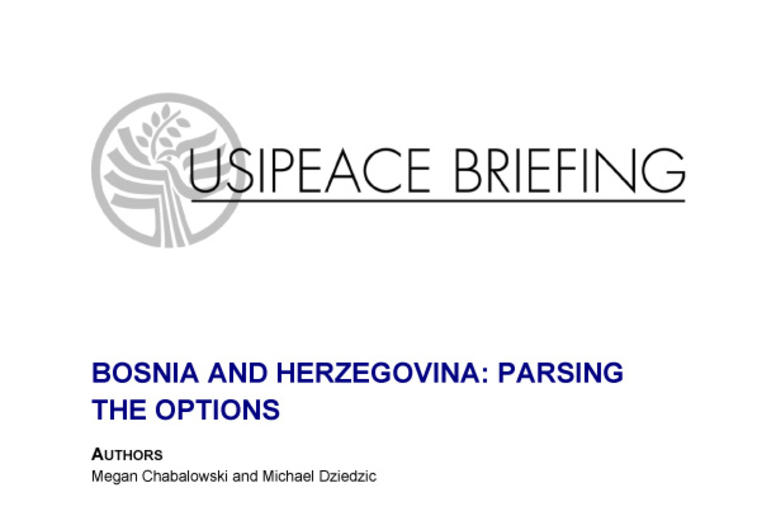
Bosnia and Herzegovina
USIP assesses several policy prescriptions and the areas of disagreement and agreement of how the international community and the region itself should address the problems in the struggling country.
Reinforcing Treasury’s Strategic Roles in International Affairs and National Security
Amid the global financial crisis, USIP explores the Treasury Department's current functions and resources as a foundation to more effectively strengthen financial institutions and combat illicit finance in non G-20 countries. USIP's Jeremy Pam describes how the Treasury Department might be better organized to play a greater strategic role in international affairs that addresses financial crises in developing countries and, in doing so, serves U.S. national security interests.
Post-Conflict Health Reconstruction:
A new USIP report examines how improving health systems in post-conflict countries can help promote peace and prevent renewed violence in those nations. In "Post-Conflict Health Reconstruction: New Foundations for a U.S. Policy," USIP fellow Leonard Rubenstein looks at health indicators in various hotspots around the world, and why addressing dire health situations can help advance peace and resolve conflicts, as well as boost the U.S's image abroad.
The Afghan Elections: Who Lost What?
On October 1, 2009, Alex Thier, director of USIP’s Afghanistan and Pakistan program, testified before the House Foreign Affairs Subcommittee on the Middle East and South Asia on the Afghan elections, the importance of strengthening Afghan institutions, and the threats to success for the U.S. mission in that country.

American Negotiating Behavior
Informed by discussions and interviews with more than fifty seasoned foreign and American negotiators, this landmark study offers a rich and detailed portrait of the negotiating practices of American officials. Including contributions by eleven international experts, I assesses the multiple influences--cultural, institutional, historical, and political--that shape how American policymakers and diplomats approach negotiations with foreign counterparts and highlights behavioral patterns that tr...
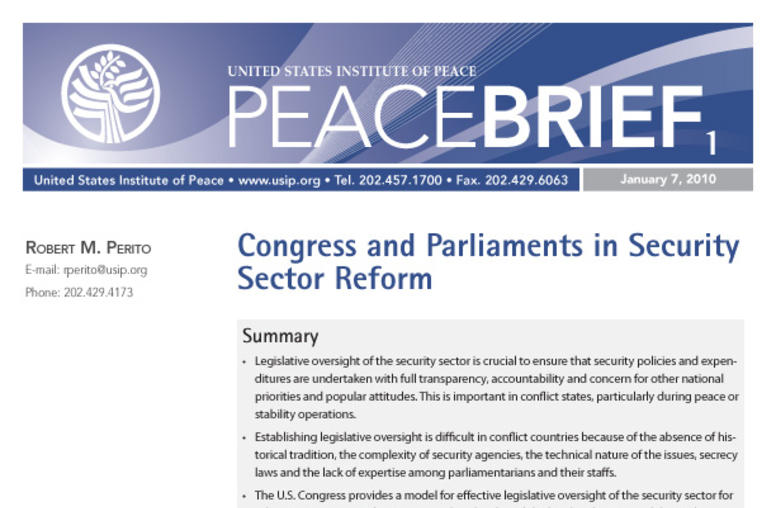
Congress and Parliaments in Security Sector Reform
A new USIP report argues the importance of legislative oversight for effective security services, and why the U.S. Congress is a model for foreign legislatures.
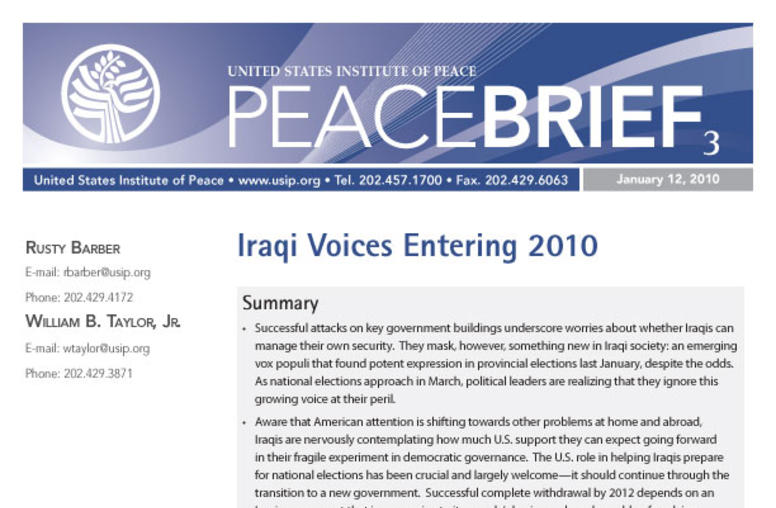
Iraqi Voices Entering 2010
As the U.S. prepares to leave Iraq, USIP examines the impact of Iraq’s emerging civil society on politics, and what the U.S. can and should do to ensure continued progress.
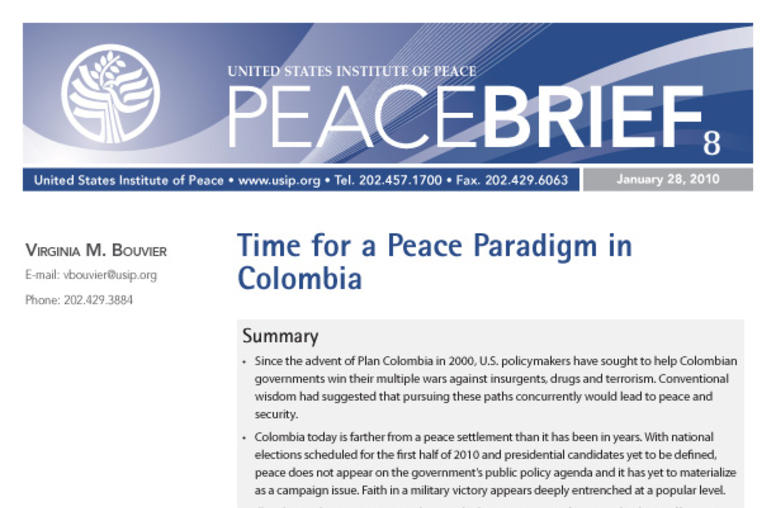
Time for a Peace Paradigm in Colombia
With congressional and presidential elections respectively scheduled for March 14 and May 30, 2010, electoral politics in Colombia will shape the prospects for peace in the coming months. Peace does not appear on the government’s public policy agenda and it has yet to materialize as a campaign issue.
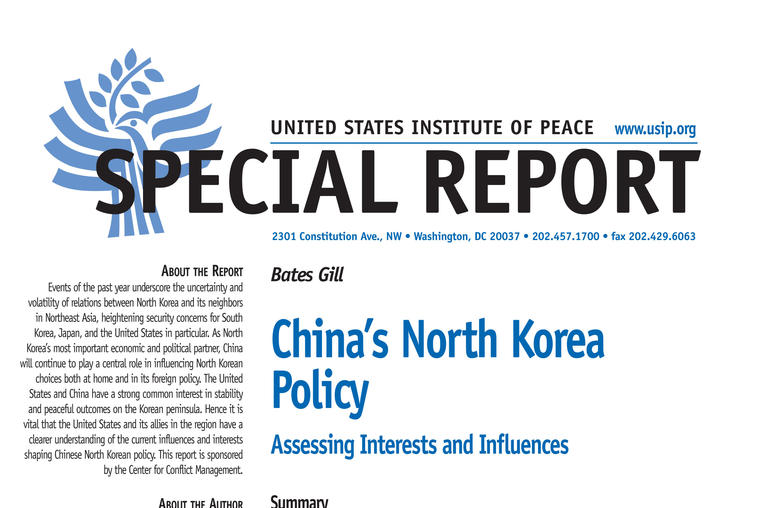
China’s North Korea Policy
Key elements in China’s Communist Party, military, and business circles have steered China’s North Korea policy toward achieving stability and strengthening ties to Pyongyang, complicating U.S. efforts to enlist China’s help at reining in North Korean provocations.
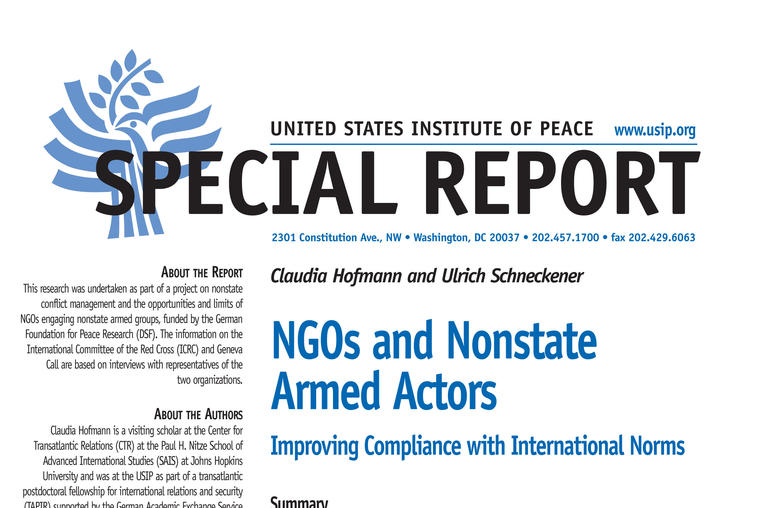
NGOs and Nonstate Armed Actors
Two seasoned NGOs engage nonstate combatants on international human rights law to get them to change behaviors, from eliminating use of landmines to protecting civilians. Their work can inform and complement other attempts at engagement.